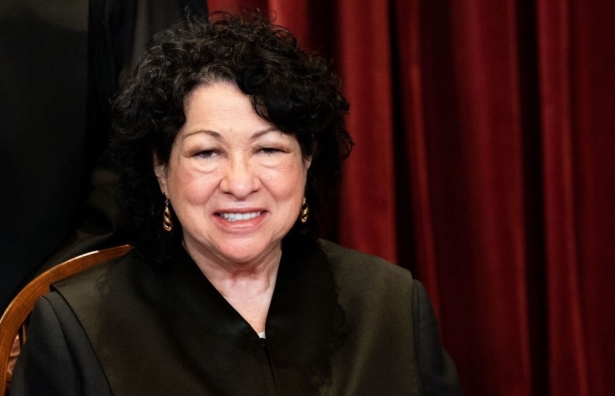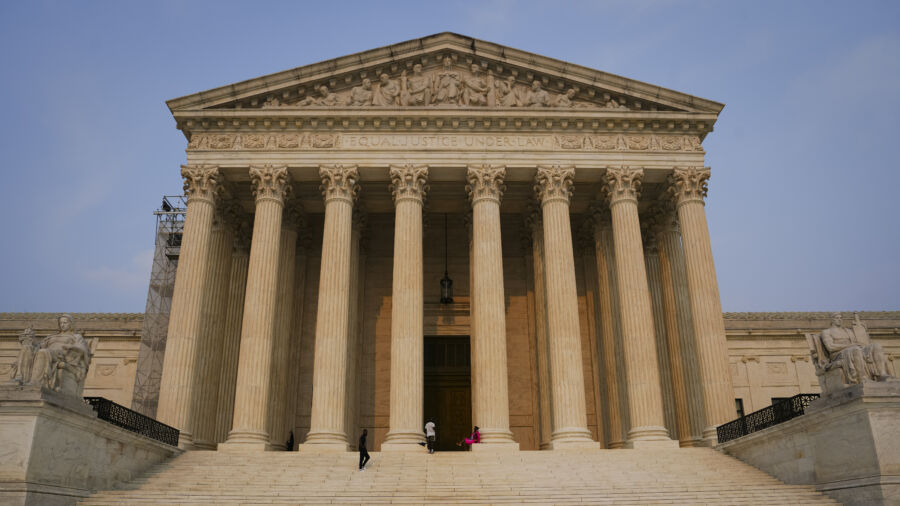The Supreme Court has decided not to hear the appeal of a former Michigan college student who sued police officers for beating him after mistaking him for a criminal suspect.
The decision to deny the petition for certiorari, or review, in the qualified immunity case of King v. Brownback (court file 22-912) came in an unsigned order on Oct. 30. The petition was filed with the court on March 17 this year.
Qualified immunity is a doctrine invented by the courts that shields law enforcement officials from individual liability unless the person violated a clearly established right.
The former student sued the officers individually under the implied cause of action recognized by the Supreme Court in Bivens v. Six Unknown Federal Narcotics Agents (1971), alleging four violations of his Fourth Amendment rights. The historic Bivens decision opened the door to individuals suing federal officers for rights violations.
The Supreme Court did not provide reasons for its ruling. At least four of the nine justices must vote to grant the petition for it to move forward to the oral argument stage.
No justices dissented from the denial order but Justice Sonia Sotomayor attached a statement to the court’s order expressing concern that the former student was treated unfairly. She also suggested the legal issues in the case should be revisited by the court in the future.
The case of James King goes back to 2014 when he was a student at Grand Valley State University in Michigan. He was roughed up by police officers who were members of a federal task force and who mistook Mr. King for a fugitive.
Mr. King was set upon by undercover law enforcement officers Grand Rapids Police Detective Todd Allen and FBI Special Agent Douglas Brownback, who demanded identification from Mr. King. The officers initially believed Mr. King was a burglary suspect; Mr. King thought he was being mugged and refused to produce ID.
Things escalated and the policemen reportedly put Mr. King into a chokehold and beat him, causing him to lose consciousness. He was found not guilty of resisting arrest and assaulting the police.
‘Judgment Bar’
He then sued the federal government for excessive use of force under the Federal Tort Claims Act (FTCA), claiming the officers committed six torts, or civil wrongs, under Michigan law. The FTCA allows private individuals to sue the government for negligent or wrongful acts of federal employees.
A provision in the statute, known as the “judgment bar,” provides that as soon as there is a “judgment” in an FTCA-based proceeding, the plaintiff is not allowed to rely on a different ground to launch another legal action based on the same conduct.
The U.S. Court of Appeals for the 6th Circuit determined that the officers weren’t entitled to qualified immunity and that decision was appealed to the Supreme Court, which heard the case in 2020.
But when that decision was appealed to the Supreme Court at that time, the court ruled against Mr. King. In the case, the court failed to decide whether the judgment bar applied when the action was initiated as part of the same lawsuit as the FTCA claim.
Instead, Justice Clarence Thomas wrote an opinion for the Supreme Court, finding that the U.S. District Court’s order dismissing Mr. King’s FTCA claims “did not trigger the judgment bar because the plaintiff’s failure to establish all elements of his FTCA claims had deprived the court of subject-matter jurisdiction.”
“We disagree and hold that the District Court’s order also went to the merits of the claim and thus could trigger the judgment bar.”

The FTCA, Justice Thomas wrote, “allows a plaintiff to bring certain state-law tort suits against the Federal Government. … It also includes a provision, known as the judgment bar, which precludes ‘any action by the [plaintiff], by reason of the same subject matter, against the employee of the government whose act or omission gave rise to the claim.’”
“While waiving sovereign immunity so parties can sue the United States directly for harms caused by its employees, the FTCA made it more difficult to sue the employees themselves by adding a judgment bar provision,” the justice wrote at the time.
After the Supreme Court ruled, the case returned to the 6th Circuit, which ruled in the remanded case that the judgment bar does indeed apply to claims brought in the original lawsuit that contained the FTCA claims.
Then on Oct. 30, the Supreme Court refused to disturb the 6th Circuit’s decision on remand.
‘Miscarriage of Justice’
Justice Sotomayor said in her accompanying statement that applying the judgment bar in a case like this “produces unfair and inefficient results.” Now Mr. King is prevented from bringing his “compelling” claims “solely because he brought them together with his FTCA claim, which was dismissed for unrelated reasons.”
The justice said nothing prevents the lower courts from weighing in on the question, which “still deserves much closer analysis and, where appropriate, reconsideration.”
“In an appropriate future case, this Court should decide this issue,” she added.
Mr. King’s attorney, Patrick Jaicomo of the Institute for Justice, a public interest law firm, was disappointed by the court’s latest ruling.
“What makes today’s decision particularly disappointing is that, when the case was last before the Court in 2020, it only resolved half the issue,” he told The Epoch Times in an emailed statement.
“The second half it remanded to the Sixth Circuit Court of Appeals. But the lower court did not address the issue. Instead, it simply applied outdated circuit precedent.
“Today, the Supreme Court decided not to finish what it started in 2020, leaving in place a de facto immunity. Nine years after members of a federal task force misidentified James King as a petty criminal and brutally beat him, the courts have let them off scot free.
“Despite prevailing over both qualified immunity and federal immunity, James King will never get his day in court.
“As Justice Sotomayor wrote in dissent from the Court’s decision not to hear the case, ‘James King now cannot litigate his claims that officers unconstitutionally stopped, searched, assaulted, and hospitalized him.’ As dissenting Sixth Circuit Judge [Eric] Clay put it, this result is, ‘a profound and frightening miscarriage of justice.’
“James deserved to have his day in court,” Mr. Jaicomo added.
The Epoch Times has reached out to the U.S. Department of Justice for comment.
From The Epoch Times


